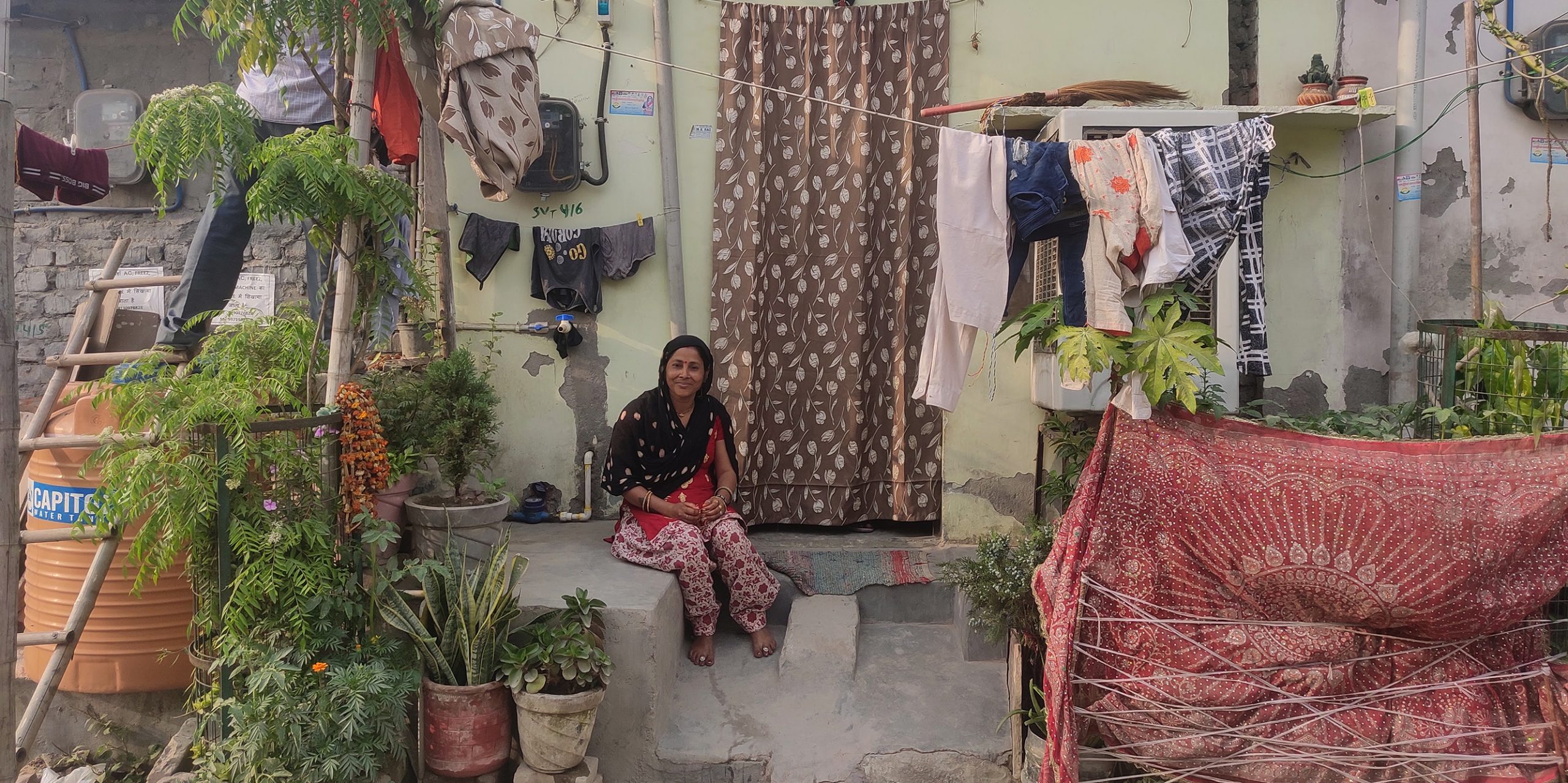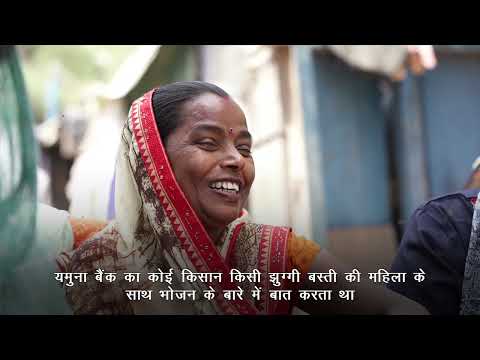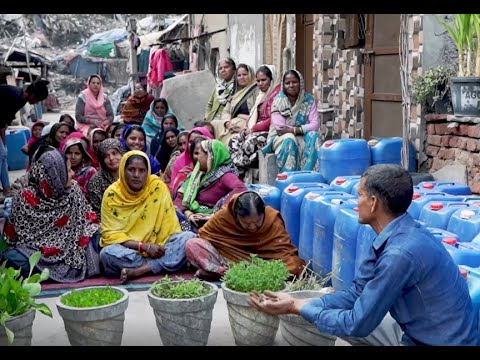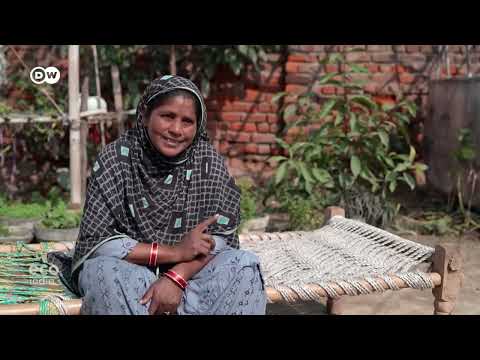This climate-resilient experimental urban farming initiative started with an aim to make marginalized women- especially wastepickers and sanitation workers in Delhi nutrition-independent for a better climate and gender justice. A baseline survey for this project revealed the alarming nutritional deficiency among women who lack basic nutritional knowledge and live in places of sanitation and hygienic disasters. There were serious challenges like space constraints and gendered food habits where women are the last and least to eat
There was an immediate need for simple means to overcome these conditions and an awareness of being healthy without spending more money. The choice of crops- mainly greens required precision, which were high nutrition and easy to grow in tiny ‘jhuggi’ rooftop gardens like spinach, red amaranth, and creepers like lauki or bitter-gourd. Also, the crops were chosen according to seasons for maximum output throughout the 18-month duration of five 3-month growing cycles. The project called for the training of the women along with material inputs and continuous monitoring. Local farmers were trained to train these women with non-chemical hacks.
Nutritionists educated the women to cook better, holding 46 cooking workshops where they experimented with maximizing the nutrients like adding lemon juice to cooked spinach. They also learned about the benefits of healthy eating. The women were dewormed so that nutrition benefits them. This restored the Right to Cookbook ensuring a new level of food dignity among the marginalized women. Chintan, in association with Flipkart Foundation, organized 143 farmer training, and daily monitoring visits by facilitators creating a new band of green revolutionaries and a fruitful learning curve.
The Characteristics of Software Architecture
Tags
#womensnutrition #Deficiency #ClimateVulnerable #ClimateResilience #GenderandNutrition #ClimateAdaptation #NutritionalKnowledge #PublicHealth #nutritionalresilience #urbanfarming Nutritionadmin
I help fin-tech digital product teams to create amazing experiences by crafting top-level UI/UX.
Similar

admin
October 15, 2003Composting of Wet Waste
Training waste workers and households in composting to divert wet waste from landfills and abate methane emissions.

admin
April 16, 2004Waste Rules in India
Read More

admin
September 16, 2004The Poison Within – How Environmental Contamination is Impacting Our Children ’s Future
How environmental contamination is impacting our children’s future




